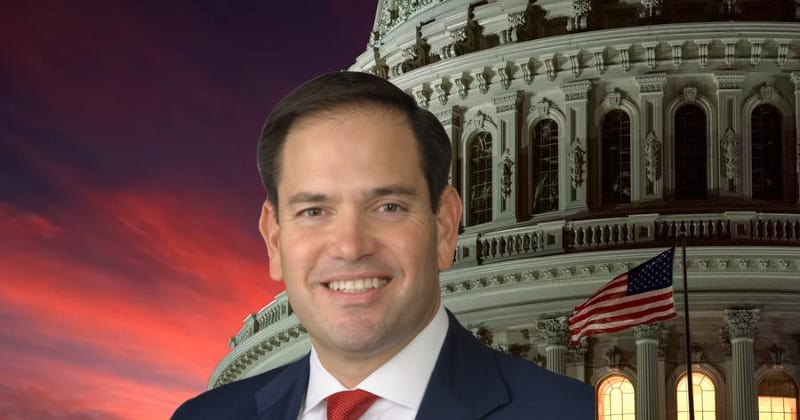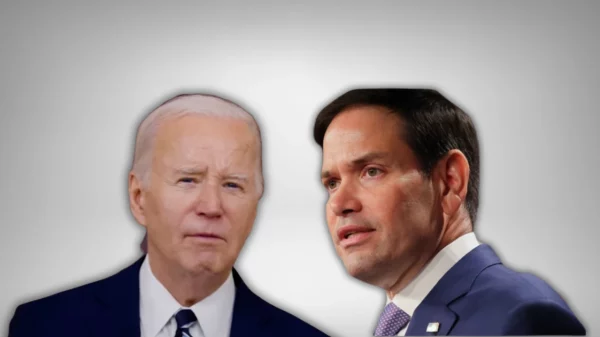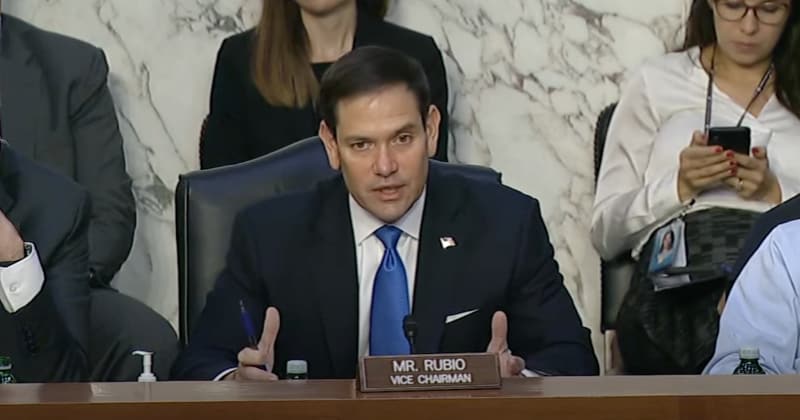This week, U.S. Sen. Marco Rubio, R-Fla., joined U.S. Sens. Tom Cotton, R-Ark., and John Cornyn, R-Texas, to urge members of the United Kingdom’s National Security Council (NSC) to reject Huawei, a Chinese state-directed telecommunications company, in its 5G infrastructure. All three senators are members of the U.S. Senate Select Committee on Intelligence.
The full text of the letter to United Kingdom Prime Minister Boris Johnson, chairman of the United Kingdom’s NSC, can be found below.
Dear Mr. Prime Minister:
We write with regard to the forthcoming decision on whether to allow Huawei to participate in the United Kingdom’s 5G infrastructure. We believe it is in the best interests of the United Kingdom, the U.S.-U.K. special relationship, and the health of a well-functioning market for 5G technologies to exclude Huawei.
A sound, well-functioning market for 5G technologies does not include Huawei, because other companies cannot compete when China tilts the market. Between 1998 and 2019, Huawei received more than $75 billion in subsidies, grants, land licenses, and other forms of financial assistance. Huawei has also routinely undercut its competitors’ prices, triggering anti-dumping investigations in the European Union and India. Last year, the Huawei 5G bid in the Netherlands was 60 percent less expensive than its nearest competitor, a difference which, according to industry experts, does not even cover the cost of parts. No one can compete with a company that has the Chinese government absorbing its losses. Ultimately, allowing Huawei to participate in the United Kingdom’s 5G infrastructure undermines the goals of supply chain diversity and providing the best options for the British people.
Effective, market-based alternatives are within reach, even as more can be done to encourage their emergence. In the United States, for example, we are considering legislation to create a fund to support research in 5G-related technologies. The 5G revolution is just beginning, and the U.K. risks locking itself into an equipment-centric solution that may become obsolete as programmers create software-based 5G alternatives that function on standard kit. The more countries do not allow Huawei to participate in their 5G networks, the more market space there is for innovators and entrepreneurs to develop competing products. And these incentives are already starting to bear fruit.
The economic arguments in favor of Huawei fall apart when the costs of risk mitigation are included. Managing risk on 5G networks is more difficult than existing 3G and 4G networks, because the software integration between the equipment erodes, if not eliminates, the “core” versus “edge” distinction. Reviewing the code as it is updated is a monumental task. This cost never goes away, because each update will require another round of review. Moreover, there is a human cost to consider. Hiring and training the people to do this means that otherwise talented individuals, at the expense of U.K. taxpayers and consumers, will be working to make Huawei better rather than investing their time and energy in creating a new program, a new company, or new jobs for working towns in Britain.
The unmanageable and costly mitigation problem raises the question of whether Huawei can be trusted. The company’s actions show a clear record of predatory and problematic behavior. Huawei obscures its ownership structure, claiming that its employees own the company through their trade union. Trade unions, however, are run by the Chinese Communist Party, not the union members. Huawei also ran a bounty program to steal competitors’ intellectual property, ranging from large corporations like Motorola to small companies like CNEX Labs. Moreover, for years, Huawei has refused to address security flaws in its hardware and software, including those identified by the U.K. Government. The company either chose not to address those concerns or lacked the competence to do so.
The context in which Huawei operates in China also should be troubling. Under Chairman Xi Jinping, the Chinese Communist Party (CCP) has made the primacy of the party and its ambitions clear. Last month, for just the latest example, new regulations on state-owned enterprises asserted their role in upholding the CCP’s leadership. Policies, like Made in China 2025 and Military-Civil Fusion, make it clear that Xi’s stated ambitions for dominance in key global industries, like telecommunications and 5G, are more than just rhetoric. Despite the best efforts of the United States and other governments to negotiate, China’s intellectual property theft remains rampant.
Given this track record, no one should be reassured by Huawei’s promises that it can, or will, refuse the Chinese government when it asks for the company’s cooperation. In many cases, Chinese law makes explicit what already was in practice: “all organizations and citizens shall, in accordance with the law, support, cooperate with, and collaborate in national intelligence work.” Huawei’s supporters always ask for the smoking gun as if the years-long exploitation of the African Union headquarters by Chinese entities is irrelevant. Those of us entrusted by voters to protect their interests must make prudent judgments about such risks. When critical national infrastructure is at stake, we cannot be careless with known dangers.
This letter represents a genuine plea from one ally to another. We do not want to feed post-Brexit anxieties by threatening a potential U.S.-U.K. free trade agreement when it comes to Congress for approval. Nor would we want to have to review U.S.-U.K. intelligence sharing. Not long has passed since America itself was forced to wake up to the dangers Huawei posed. We did so in part because our international friends, like the Australians, urged us to think through the implications of allowing Huawei to participate in 5G infrastructure.
Throughout the ups and downs of our special relationship, the United States and United Kingdom have always been able to agree upon the facts. The facts on Huawei are clear. We hope that your government will make the right decision and reject Huawei’s inclusion in its 5G infrastructure.
Thank you for your consideration.














